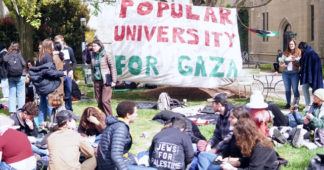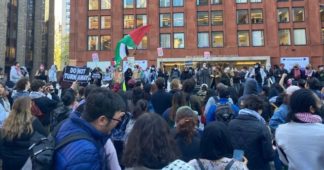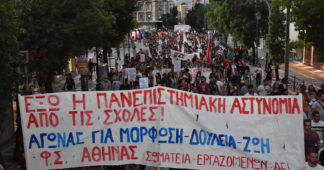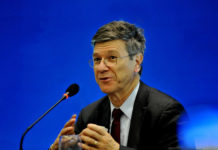Students at many French political science institutes were involved rallies and blockades on Tuesday. Sciences Po Paris is preparing to host a major debate on the Israeli-Palestinian conflict, in response to earlier protests.
“Supporting Palestine is not a crime,” read a banner at Sciences Po Toulouse, as students there began to protest demanding a ceasefire in Gaza, on Tuesday, April 30, in a demonstration at their establishment. Most of France’s institutes of political studies (IEP) were disrupted by student general assemblies and rallies, as in Lyon, and even blockades, as in Rennes, Saint-Germain-en-Laye, and Strasbourg, in the wake of actions taken the previous day at the Sorbonne in Paris.
On Monday, at the request of Prime Minister Gabriel Attal, who wanted “a rapid reaction,” police had intervened promptly to dislodge the students who had pitched tents in the main courtyard of the prestigious Parisian university.
Since the first encampment was set up in the inner courtyard of Sciences Po Paris on April 24 – evacuated that night by the police – and echoing the movement underway at Columbia University in New York, the movement in support of the Gazan people has gained momentum in France, although it is essentially confined to the IEPs and a few universities.
The Menton campus of Sciences Po Paris – which has seven campuses outside of Paris – was occupied until the early hours of Tuesday morning by around 30 students who had decorated the facade with a Palestinian flag. In a message to students, campus director Youssef Halaoua announced his decision to close the premises “until further notice” and to switch courses to distance learning.
Continue reading at www.lemonde.fr
We remind our readers that publication of articles on our site does not mean that we agree with what is written. Our policy is to publish anything which we consider of interest, so as to assist our readers in forming their opinions. Sometimes we even publish articles with which we totally disagree, since we believe it is important for our readers to be informed on as wide a spectrum of views as possible.











